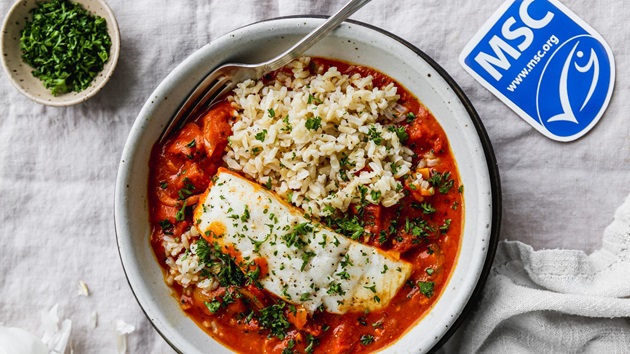Discover how to transform your diet with this guide to making Keto, Whole30, and Paleo more planet-friendly.
Rising awareness of how our everyday food choices impact the environment and global warming is fueling new dietary lifestyles such as Flexitarian and Climatarian, which encourage you to take the planet’s health into consideration with your food choices. Have you considered whether the foods recommended in your diet are good for you, and the planet?
Is Your Diet Good for Planetary Health?
Congratulations on making conscious choices to eat foods that are good for you! But let’s take a moment and consider how those food choices may be impacting the planet. The process of growing and getting foods onto your plate generates greenhouse gas emissions – with the worst offenders being red meat and cheese, according to researchers. (Of note, evidence also links the consumption of red meat to an increased risk of disease.) But, protein is important in a healthy diet, notes research.
So what’s a better protein-rich food for your diet?
Seafood has a markedly lower impact on the environment than red meats and processed meats, according to scientists. (Plus, it’s healthier too - consumption of oily fish is linked to better heart and cognitive health). Make your popular diet more planet-friendly by looking for certified sustainable seafood options when shopping – it’s easy! Look for the MSC Blue Fish logo.
Protein-Rich Foods to Eat Based on Their Environmental Impact (Ranked Best to Worst)
- Beans, Chickpeas, Lentils (lowest impact)
- Sustainable Seafood
- Nuts and Eggs
- Poultry, Pork, Dairy
- Red Meat (highest impact)
*Source World Resources Institute, Protein Score Card
How to Include Sustainable Seafood in Popular Diets
No matter which popular diet you’re following, sustainable seafood can be your go-to choice for a healthy protein. From Keto to Climatarian, Paleo to Flexitarian, here is your guide to making popular diets more planet-friendly, including how and why sustainable seafood should be included.
What Sustainable Seafood Can You Eat on Keto?
Keto encourages a limit on sugar intake with a focus on protein. As a great source of healthy protein, sustainable seafood is an easy food to include in a keto lifestyle. Plus, compared to meat, seafood contains high amounts of taurine, the most abundant amino acid in the brain spinal cord, white blood cells, eyes, heart, and muscles. Taurine has vitally important roles in maintaining immunity, calcium balance, eye, and heart function, according to science.
If you’re following a Keto diet, here are some sustainable seafood recipes that may fit into your diet:
- Butterflied Prawns with Garlic, Chilli, and Herb Butter
- SYLT Blue Mussels with a Breeze of Asia
- Haddock with Fennel, Lemon, and Black Olives
Fishing for More Ideas? Explore the MSC Ocean Cookbook 2022 today – it’s free!
The Biggest Diet Trends are Sustainable: Flexitarian and Climatarian Diet
If you are following a Flexitarian or Climatarian style eating plan, you’ll love these delicious sustainable seafood recipes:
- Roasted and Flaked Wild Halibut Salad with a Crunchy Seed Topper
- Hot Somen Noodle Soup (Nyumen) with MSC Certified Capelin
- Garlic Flavor Manila Clams with Tofu Stew
- Halibut with Mushroom Sauce and Jerusalem Artichoke Puree
For more sustainability tips, check out 22 Tips to Live a More Sustainable Lifestyle in 2022.
What Seafood Can You Eat on Whole30?
If you are following the Whole30 diet, you may enjoy these sustainable seafood recipes:
- Puttanesca Style Squid Salad
- Mussels with Fennel, Lemon, and Samphire Dip
- Broiled Wild Salmon with Pineapple Salsa
- Tropical Shrimp Ceviche
Is Seafood Paleo?
If you are focusing on a paleo diet, here are some sustainable seafood recipes you may enjoy:
- Citrus, Melon, & Wild Cod Salad
- Best Sustainable Tuna Melt
- Cantabrian Anchovy Pasta with Red Pepper Pesto
The Best Diet Plan for the Planet
- Keep asking questions about your seafood choices.
- Find more answers and culinary inspiration by following @MSCbluefish.
References:
Reducing food’s environmental impacts through producers and consumers. Science 2018 June, 360(6392):987-992.



